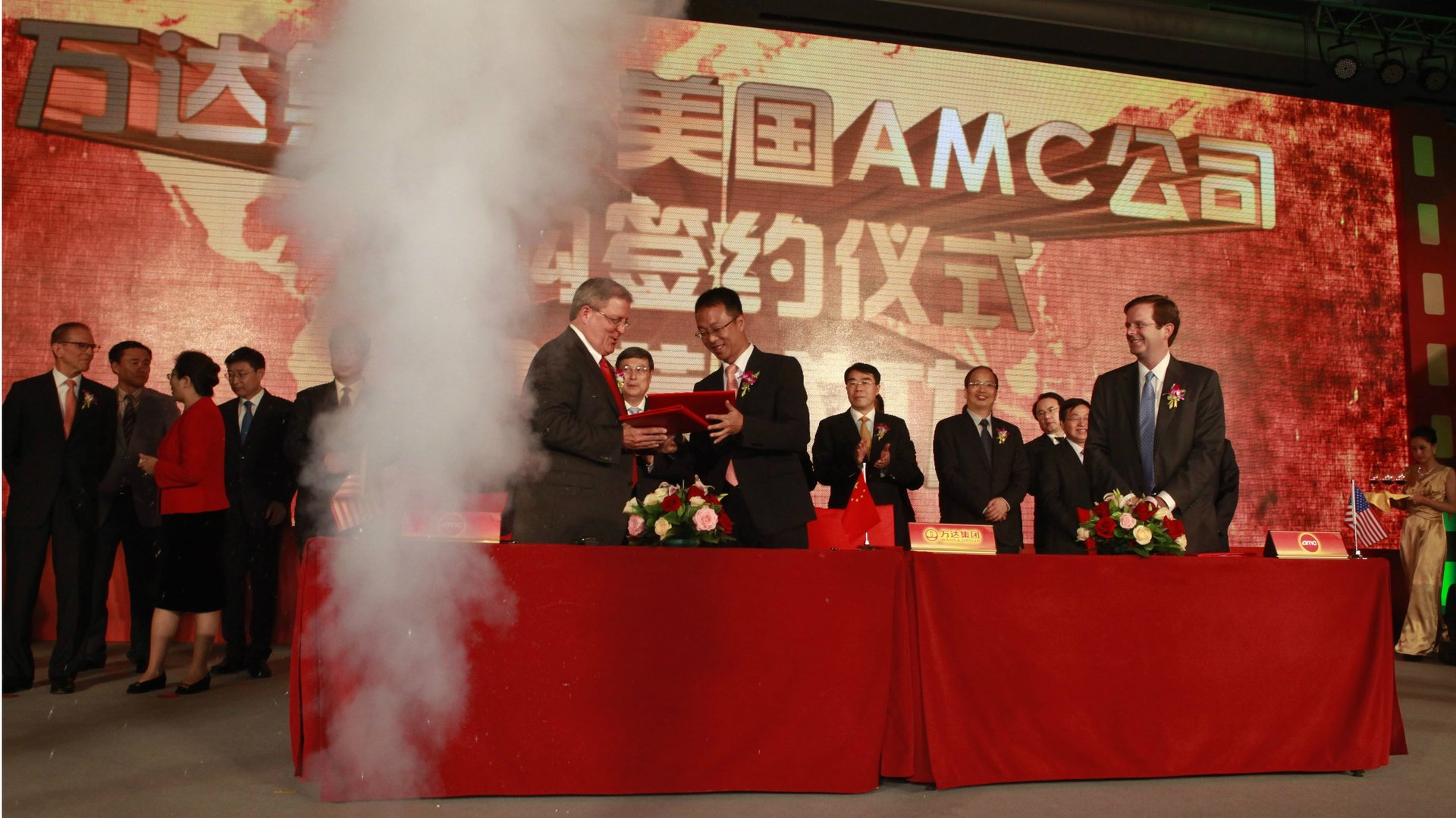Despite politics, China is spending more than ever on US companies
Despite the economic slowdown in China, 2012 is already a record year for Chinese companies buying up US firms. In the first nine months of this year, Chinese corporate buyers spent more snapping up American purchases than any previous year on record, according to a report by consultancy Rhodium Group.


Despite the economic slowdown in China, 2012 is already a record year for Chinese companies buying up US firms. In the first nine months of this year, Chinese corporate buyers spent more snapping up American purchases than any previous year on record, according to a report by consultancy Rhodium Group.
The statistics were boosted by Chinese property developer Dalian Wanda’s $2.6 billion buyout of movie theater chain AMC in September. And the deal pipeline remains strong, especially in commodities and energy. Smithfield, a US meat supplier, is discussing a $1.8 billion biofuel join venture with Chinese egg producer Beijing DQY Agriculture. And a Chinese consortium, including oil giant Sinopec, plans to pump around $1 billion into the Texas Clean Energy Project, a green power plant scheme.
Predictably, US politicians are getting hot under the collar about this trend. A few big China-US deals have been scuttled in recent weeks, which is ratcheting up tensions between the two nations.Notably, President Obama blocked Chinese industrial firm Sany Group from building wind farms in Oregon.
Hawker Beechcroft, a debt-laden American corporate jet maker, has also just failed to sell itself for $1.8 billion to a little known Chinese firm named China Superior Aviation Beijing, which appeared to have ties to Beijing’s municipal government. Hawker’s CEO blamed the Panda-bashing political climate in the run up to the presidential election for his deal falling apart. And Sany, which is suing Obama over its failed deal, has also claimed its wind farm project was destroyed by political posturing.
Rhodium Group disagrees, writing in its report on that the Sany rejection was “not a political game of chicken, but instead is another case of espionage concerns based on proximity to defense installations.”
When the US Committee on Foreign Investment ruled against Sany affiliate Ralls Corp’s plans, it said the project was located at sites in or near restricted Navy airspace. Sany is not a Chinese state owned enterprise. But the paranoia exhibited by the House Intelligence Committee toward two other seemingly privately-owned Chinese companies, network operators Huawei and ZTE, shows that US politicians feel they never can be too sure.